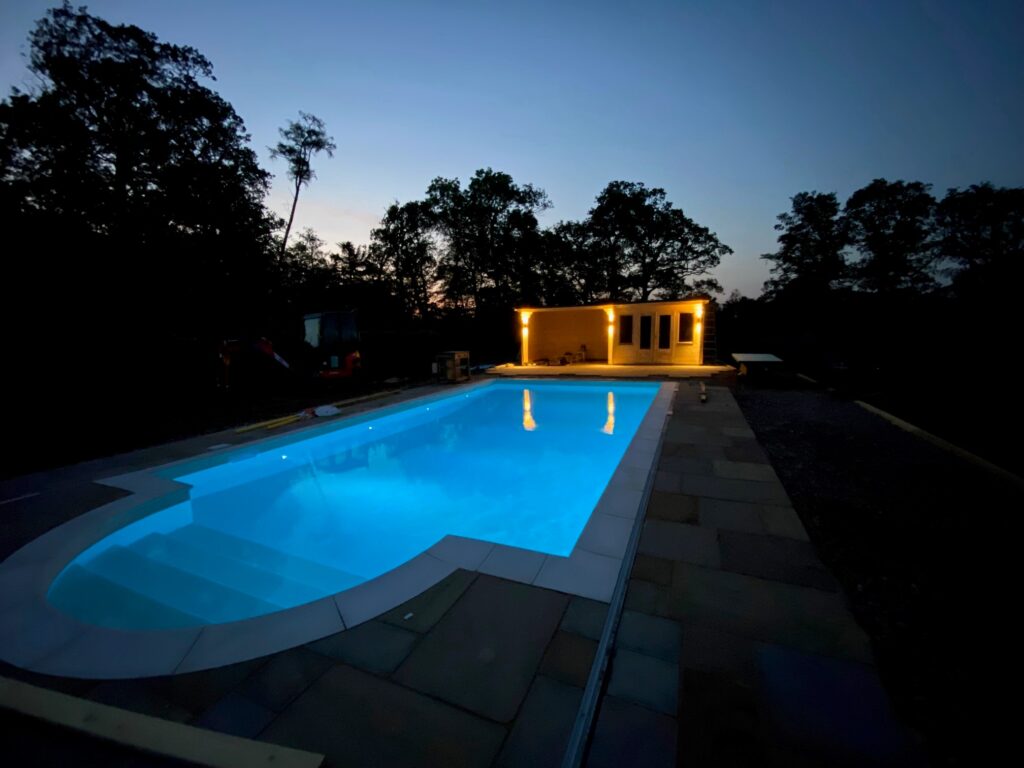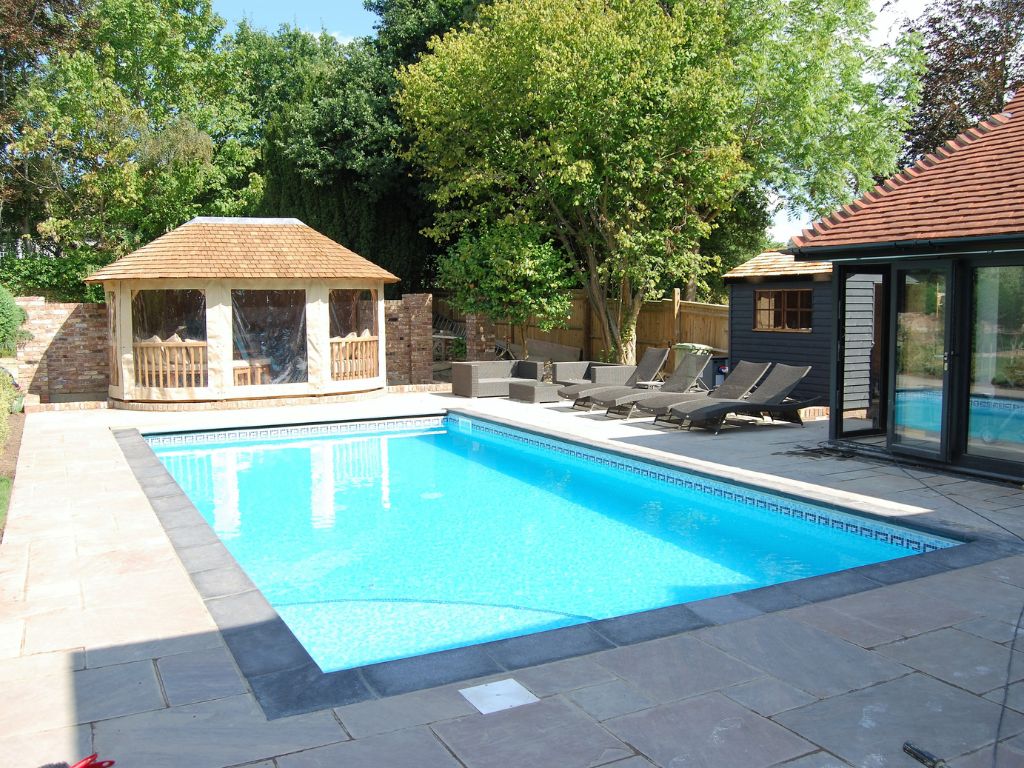On warm summer days, there’s nothing better than enjoying a cool dip in a swimming pool. Unfortunately, sometimes a chlorine pool can cause irritation and put a dampener on your relaxing swim. If you want to avoid this, a salt water pool could be the answer.
With lower upkeep costs, many pool owners are making the switch to a salt water pool through a swimming pool renovation. But is it right for your home? In this post, we’ll cover everything you need to know about salt water pools, from the advantages and disadvantages to how to maintain them.
Looking for a saltwater pool for your home? Speak to our expert team today to discuss your options.
What is a salt water pool?
Saltwater pools are similar to regular swimming pools, except they don’t require the frequent additions of chlorine to the pool water. A saltwater swimming pool features a salt chlorine generator, which is used to convert salt into chlorine. Yes, that’s right – there is, in fact, chlorine in salt water pools. However, this converted form of chlorine is highly pure, with the inflammatory by-products, chloramines, eliminated in the conversion process. It is these by-products that can cause many of the issues associated with traditional chlorine pools.

Advantages of a salt water pool
What makes a salt water swimming pool such a popular choice? Here are some of the main benefits…
Smoother water
Thanks to the lower levels of chlorine, the water in these pools is smoother and silkier to swim through. Creating a more natural swimming pool, it’s a cleaner, less salty alternative to swimming through ocean water.
No after effects
Dry hair, eyes and skin can be after effects of swimming in a chlorinated pool. That’s not the case with salt water – the reduction of chloramines means that you’ll be left feeling supple as you leave the pool.
Little to no smell
Removing the chloramines also removes the chlorine smell that comes with them. If you have allergies or sensitivities to smells, this can be a big benefit of salt water pools.
Requires less long-term maintenance
Unlike traditional pools, there’s no need to constantly add chlorine to your salt water swimming pool.. Although there are still important swimming pool maintenance tasks and water chemistry to take care of, these are not as frequent, or as intensive.
No bleaching
Ever stepped out of the pool only to find your bathing suit completely bleached or your hair a funny shade of green? With reduced chlorine levels managed by the salt cell and its dosing control, this is far less likely and completely avoidable.
Safer to use
With salt water swimming pools, there are less chemicals to store.
No salty taste
Despite the name, salt water pools don’t have a salty taste. The salinity of this type of pool is about 10 times less than actual seawater.
Disadvantages of a salt water pool
Salt water swimming pools offer some fantastic benefits, but there are also some disadvantages to consider…
Upfront costs
Whilst they will bring big savings over time, installation costs for a salt water pool can be expensive upfront. Depending on the model you choose the initial installation cost may seem expensive, BUT, it will pay for itself several times over in its lifetime. Meanwhile, you will enjoy years of low maintenance, carefree swimming.
Corrodes metal equipment
This can be the case with some very old equipment. Salt is corrosive to metals, which means that any metal pool equipment in your salt water pool could be damaged over time. That includes metal wall panels, handrails, ladders, diving board brackets, and heaters. This can cause rusting, as well as weakening ladders and rails that are needed for safety purposes. Happily, most swimming pools can either be easily upgraded or will have salt ready equipment already because the industry has been making most products ‘salt ready’ for some time.
Expert repairs
Generally speaking, salt water pools are very easy to maintain. However, correct water balancing, along with regular testing, can generally resolve most problems. Due to the complex nature of the salt chlorine generator, you’ll need to call on an expert to conduct repairs and replacements for your salt water pool when they arise.
Maintaining your salt water swimming pool
Whilst you’ll notice a clear dip in the time and money spent on maintenance, it’s a misconception that there’s zero maintenance associated with salt water pools. Here’s what you’ll need to do to keep them working optimally…
- Test your pool. You’ll need to test the pH levels and free chlorine each week, and the salinity, alkalinity, cyanuric acid, phosphates, and calcium levels each month.
- A few times per year, you’ll need to inspect your salt cell. Check for calcium build-up and either reverse the polarity with the system if it has the feature or by soaking the cell in salt cell cleaner.
- Keep checking the filter and pump daily for obstructions or debris.
- Check for any signs of corrosion on metal pool equipment, as well as rubber O-rings and pump seals.
Installation and maintenance for salt water pools
Whether you’d like to install a saltwater pool in your back garden or maintain your swimming pool over the year, Hydrocare is here to help. With over 25 years’ experience constructing and maintaining swimming pools across the South East, you know your pool is in expert hands.
Your pool is the pride of your home – so, when it comes to taking care of it, quality is key. As SPATA (The Swimming Pool and Allied Trades Association) members, our work reaches the highest industry standards. Plus, for your peace of mind, we offer a full guarantee on our swimming pool construction and installation work.
Ready to take the plunge? Contact our friendly team today to get a free quote.

